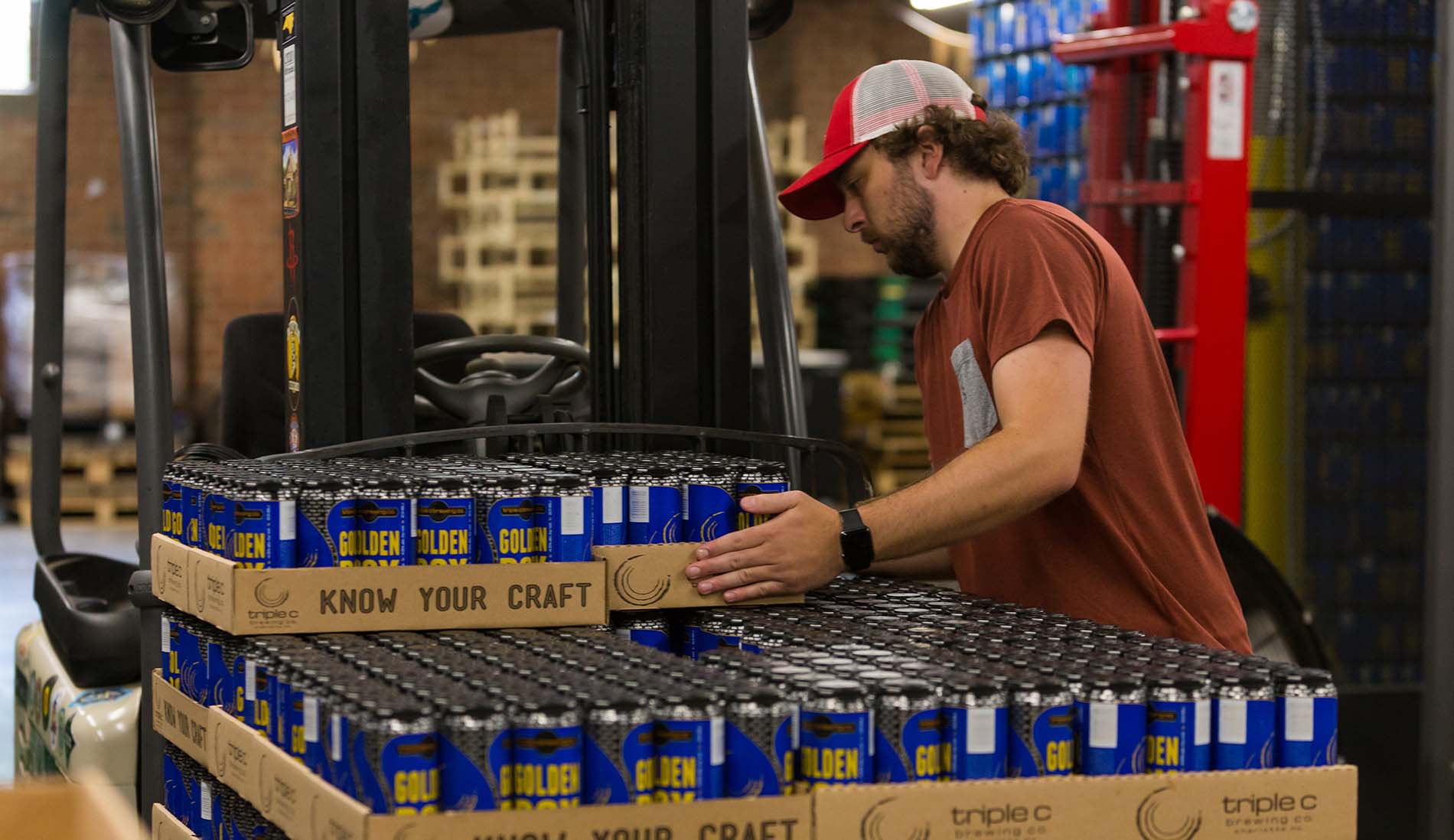Whether you make beer, wine, cider, kombucha, mead, or canned cocktails, the recently updated Safe Food for Canadians Regulations (SFCR) should be in the forefront of your mind. If you make products with an alcohol content of 0.5% or above, the SFCR now apply to you — which means your business must have a traceability process in place by July 15, 2020.
What Is Traceability?
The Canadian Food Inspection Agency defines traceability as “the ability to track the movement of a food product, one step forward and one step back in the supply chain.” In plain English, that means you need to know where the raw materials that went into your product came from and where your finished product was distributed (and have clear record of it).
Traceability Requirements in a Nutshell
Identify and Document
SFCR requires each finished good be identified with its common name, the lot code (lot number), and the location where it was manufactured.
Trace Back
For each product, document the ingredients, the name and address of the source (farm, etc.) of the ingredients, and the date those ingredients were received.
Trace Forward
Document the name and address of the businesses your product was sold to and on what date it was sold. This requirement only applies to craft alcohol businesses that sell their product to other companies, whether this is done via self-distribution or third-party distribution. If a brewery only sells in the taproom but not to bars or stores, it need not trace forward since the product is only sold directly to consumers.
How Can Breweries & Other Alcohol Producers Ensure Compliance with SFCR?

There are two primary methods you can use to get your team in the swing of complying with traceability requirements before July rolls around: manual (paper/spreadsheet) record-keeping or reporting via your inventory management system.
Manual Documentation
Whether you have an inventory management system or not, it all boils down to keeping accurate records at every stage of the production process. From receiving inventory to starting a batch to packaging and selling the finished product, you must have a system in place to record the lot codes for what comes into your facility and follow it on its way out to customers. You might keep this on physical inventory and brew sheets, and you should ideally have digital copies in case your paper ones become lost or damaged. See this resource from Beer Canada if you plan to pull this information without the help of an inventory management system.
Inventory Management System Reporting

Does your team use an inventory management system to keep track of raw materials, batches, finished goods, and sales? If you do, and you use the system well (meaning: your team actually keeps track of all these items accurately), traceability requirements will be much easier to deal with. In most systems, reports can easily be pulled to help you trace your products one step back and one step forward. You might need a little help from the platform’s support team to do it the first time, but it will be well worth it to avoid handwriting or typing out all your inventory, production, and sales information.
Keep in mind: No matter how you manage your inventory data, you must have the right information available for any of this to matter. A fancy inventory management system won’t magically tell you the lot codes if you don’t know them or have them assigned, and it won’t tell you where your product is going if your sales team doesn’t accurately keep track of customer information and transactions. You must put good information in to get good information out.
A Note About Organic
If your products are certified organic in Canada, you’ve already been complying with these regulations to keep your certified status. So, it’s good to make sure you know what the traceability requirements are, but it’s unlikely that anything will change for your facility. The only difference is that your brewery, winery, cidery, or other craft beverage company now must comply with SFCR regardless of whether you apply for organic certification.
Lot Tracking Made Easy

First of all, if you don’t already have an inventory management system and you’re in the position to invest in one, now is the time to do it. At the time of publishing, there’s about 6 months before all Canadian alcohol producers need to have their traceability system fully in place, and it’s hard to do that if you’re not accurately tracking your inventory, production, and sales.
If you’re shopping for a system, make sure it has these components that will help make gathering data for traceability compliance easier:
- Real-time updated inventory
- Cloud-based system that your entire team can use, whether they’re in the warehouse or on the road
- Batch planning and task management
- Custom product recipes
- Sales order and invoice management
- CRM capabilities so you can find the name, address, and order history of your customers
- Custom reporting so it’s easy to pull the traceability information you need
Pro tip: You can get all this and a lot more when you choose Ekos. Reach out to us today to schedule your free demo or talk to our team about how Ekos can help you get ready for the changes SFCR will bring.
Additional Resources on SFCR
Brewers Journal: Beer Traceability in Canada



